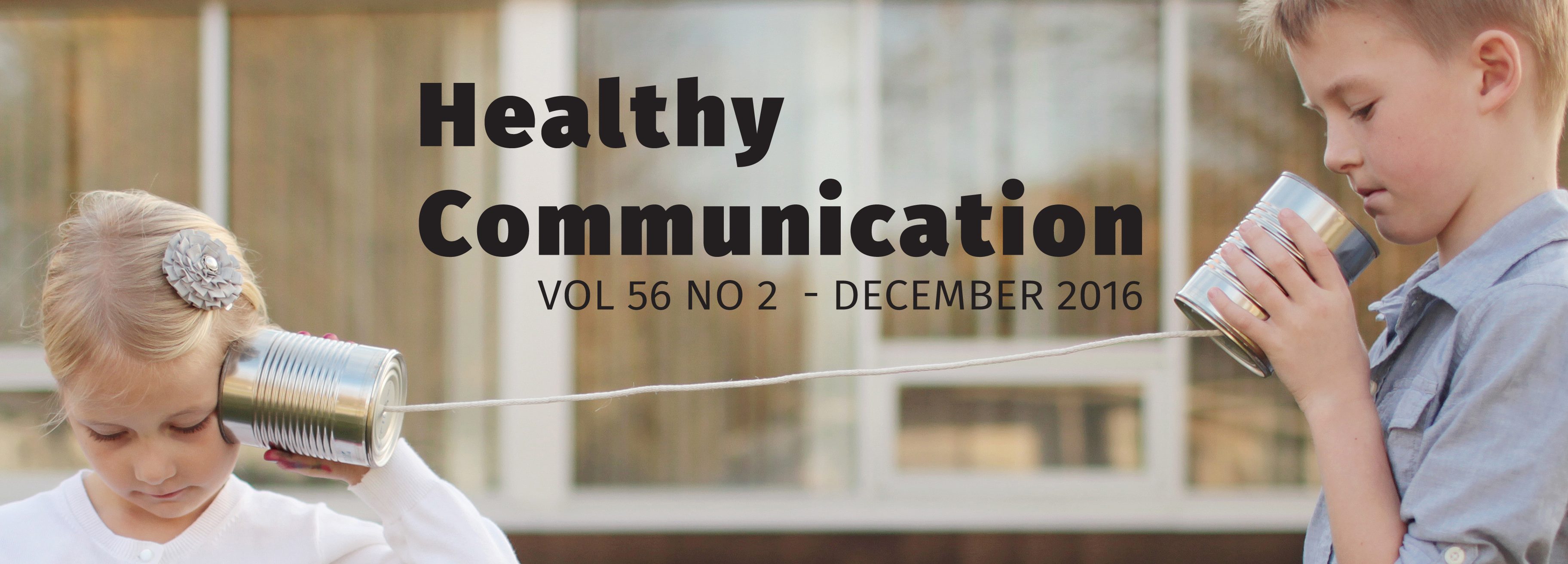“They have healed the brokenness of my people superficially, saying, ‘Peace, peace,’ but there is no peace.” Jeremiah 6:14
Have you ever avoided a person because of an uncomfortable conversation that you knew you needed to have? Have you ever told someone that things are OK when in fact they aren’t? Have you ever overreacted to a question that someone has asked? Have you ever had a hard time getting up in the morning due to a conflict that is unresolved?
In the realm of schools, churches, institutions, and workplaces, building relationships is a necessary and sometimes difficult thing to do. Building authentic relationships is often hard work. Our Christian institutions cite community building as a goal. We want them to be places where we are honored and respected and feel part of something bigger than ourselves, but sometimes we don’t feel that community is authentic. What I am proposing in this article is that true community cannot be attained without a climate of honesty, transparency, confidentiality, and a willingness to deal with conflict.
- “Sloppy grace replaces the grace of the Bible with mercy, letting people off the hook for their sins…Failure to confront, to speak the truth in love, can ultimately be as fatal to the growth of community as judgmentalism.” Bruce Hekman
One of things that I have noticed over my almost forty years working in Christian communities is the lack of training offered about how to have crucial conversations with one another. I’ve also often seen reluctance to deal with hard things. Some would have us believe that conflict is a symptom of broken community or that conflict is the enemy and must be avoided at all costs. I would propose that conflict is an opportunity; in fact, how we deal with conflict ought to be reclaimed as a pathway into deeper community and truth. Dealing with conflict or having the difficult conversation would be a way to say that you care enough to ask the hard questions and deal with the underlying brokenness or pain.
If conflict or difficulty underlies your school or workplace relationships, there are generally four unhelpful or broken ways that it will present itself: avoidance, withdrawal, attacking others or attacking oneself (Nathanson, 1992). Working alone, staying away from the staff room, reacting irritably toward others, oversleeping, overeating, self-medicating—these are all signs that something is not right with someone’s relationships in the workplace.
So what do you do as a teacher, leader, board member, or parent?
“Do everything in love.” I Corinthians 16:14
One of the clarifying questions that each of us needs to ask is whether it is our role to ask questions or deal with the problem.
Works Cited
Hekman, Bruce. “Schools as Communities of Grace.” Web. https://scssolutions.wikispaces.com/file/view/Schools_Grace.pdf.
Ortberg, John. Everybody’s Normal Till You Get to Know Them. Zondervan: 2014.
Patterson, Kerry, Joseph Grenny. Ron McMillan, and Al Switzler. Crucial Conversations: Tools for Talking When Stakes Are High. McGraw-Hill: 2002, p. 33.
Diane Stronks is currently working as the Executive Director of Edifide Christian Educators Association. Since coming to Edifide, she has become a facilitator in Restorative Practice as well as working towards a diploma in Mediation for the ADR (Alternative Dispute Resolution) Commission of Ontario.
